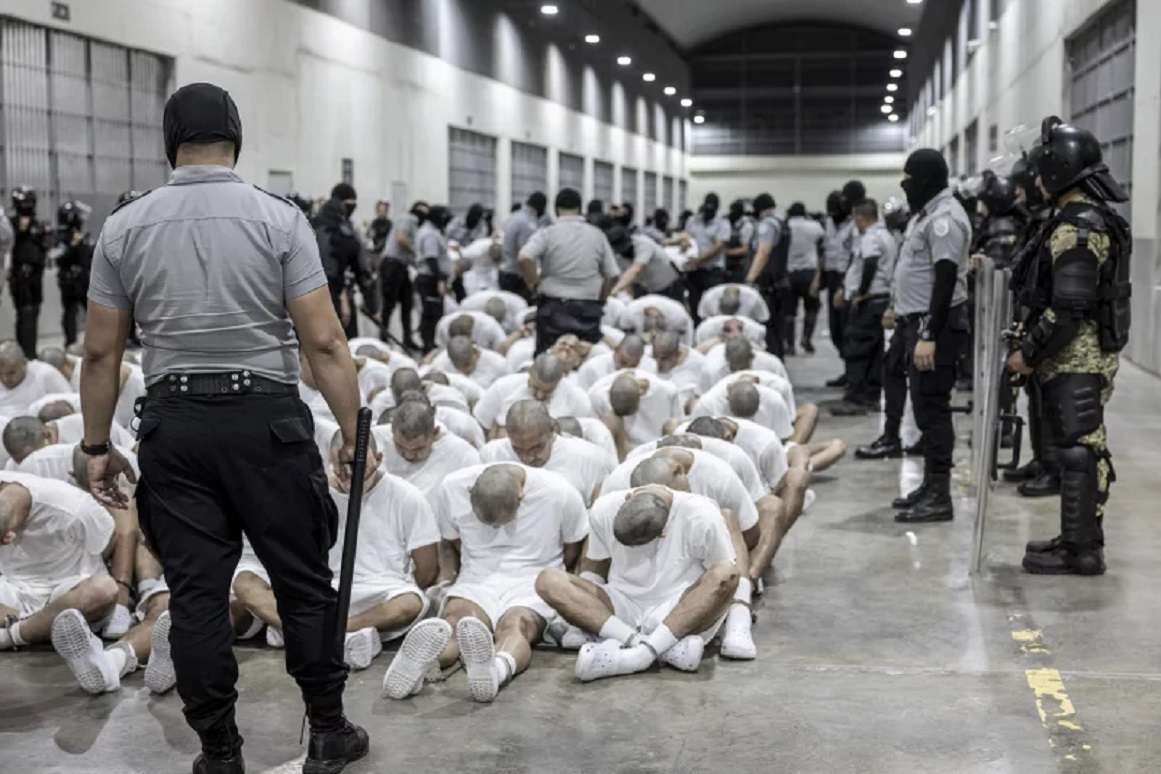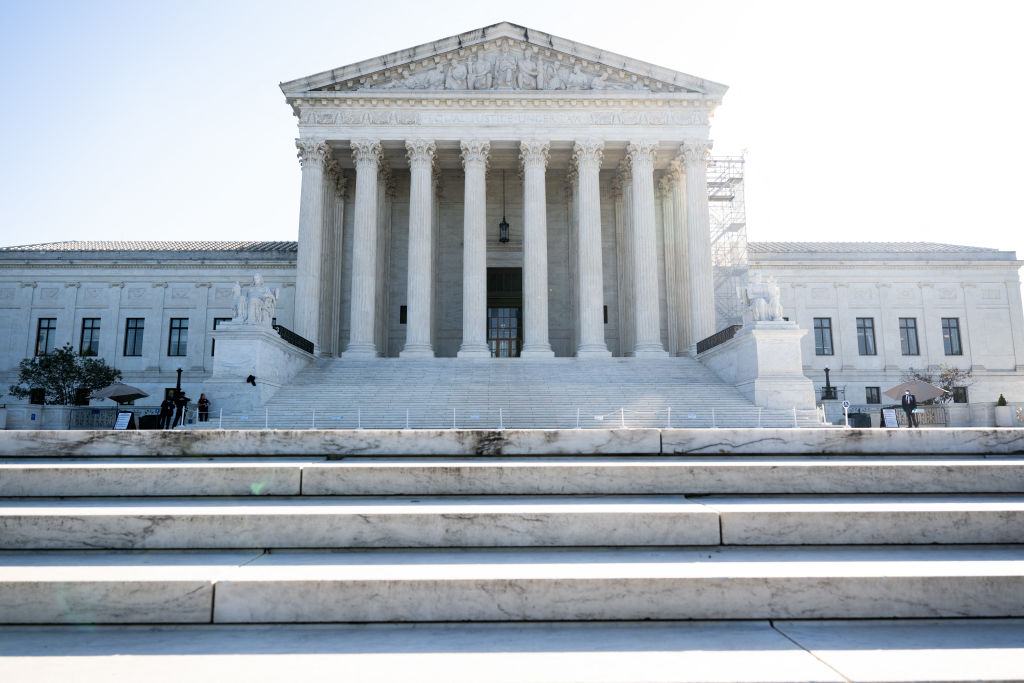
President Trump has been trying use the Alien Enemies Act of 1798 as a tool for mass deportation. The AEA allows detention and deportation of foreign citizens of relevant states (including legal immigrants, as well as illegal ones) “[w]henever there is a declared war between the United States and any foreign nation or government, or any invasion or predatory incursion is perpetrated, attempted, or threatened against the territory of the United States by any foreign nation or government.” Multiple federal courts have ruled against Trump on the grounds that his invocation of the AEA is illegal because there is no declared war, and the activities of the Venezuelan drug gang Tren de Aragua (which Trump cites as justification for using AEA) are not an “invasion” or a “predatory incursion.”
One federal judge has issued a badly flawed ruling holding that TdA’s actions qualify as a “predatory incursion.” But with that exception, courts have rejected the Administration’s interpretation of the AEA, and there has been unanimous agreement that the meaning of terms like “invasion” is subject to judicial review and interpretation.
But some judges have held that the Administration does deserve deference on its factual determinations about whether a war, “invasion,” or “predatory incursion” have occurred, and if so whether they were perpetrated by a “foreign nation or government.” I previously critiqued such deference here. Legal scholar Rebecca Ingber has now published a more detailed critique in an insightful article for Just Security:
The question of who gets to make the predicate determination of whether the United States is at war or facing invasion or predatory incursion is as or more important as the assessment itself. That who should involve Congress, first and foremost, as the branch constitutionally assigned decisions to go to war. But in the case at hand, I mean, do judges get to review the president’s factual assertions that the United States is at war or facing invasion or predatory incursion, or is that left entirely to the executive’s discretion? This question, so framed, has implications far beyond the AEA cases. Given just how much extraordinary power the courts have recognized for the president during times of war, this power would be all-encompassing if it is left to turn on or off by the president alone – especially if the president can declare a situation is one of war or the like with no judicial check on whether that claim is completely unfounded….
Judge Haines’ favoring “substantial deference” to the President’s factual analysis is of a piece with years of judicial reticence to look too closely at what the President is doing when he claims war powers. Judges quite regularly question the competence of courts to “second guess” national security judgments the executive branch puts forward. As Judge Rodriguez states, they worry that the President’s decisions might be based on some secret intelligence or “sensitive and confidential information” they do not have, and which they should not push the President to divulge….
This supposed expertise or information gap is one basis on which courts often defer to the executive…”
Yet while courts are often invested in the idea that there is some special process happening behind the closed doors of the executive, they are typically loath to delve behind it. As a result they defer aimlessly, often to what is simply the litigation position the executive branch puts forward in court. They may seem willfully blind to clear unconstitutional animus by the president because they are comforted that an internal, and secret, “review process undertaken by multiple Cabinet officials and their agencies” sufficed to remove its taint.
In the AEA cases, deferring to the President’s expertise and secret intelligence is an especially transparent legal fiction. We have seen the publicly released work of those experts and intelligence sources, and they fundamentally undermine the President’s assertions….
Moreover, not all courts have been so blindly deferential on questions of national security. Indeed, federal judges regularly adjudicate highly sensitive foreign intelligence and surveillance matters in cases before the Foreign Intelligence Surveillance Court (FISC); they review classified information using the Classified Information Procedures Act (CIPA) in a range of criminal cases; they adjudicate whether the military detention of alleged “enemy combatants” is lawful in Guantanamo Bay habeas cases relying on the government’s classified information about an ostensibly ongoing armed conflict… In the Guantanamo habeas cases in particular I have seen firsthand how much of the government’s initial assertions dissolve like sand through one’s fingers in the face of adversarial process and judicial review. Our nation’s history is also replete with examples of federal courts making much weightier determinations, stretching from policing the executive’s use of the limited war powers granted to it by Congress in the quasi-war with France to determining the legality of Lincoln’s blockade of southern ports at the outset of the Civil War….
When the President exploits the concept of war, or emergency, or national security, to claim extreme power over all aspects of our lives, we should scrutinize that power with a rigorous lens. And when we are talking about basic civil liberties – and a President’s attempt to turn off constitutional due process with the flick of a pen – these questions are well within the province of the courts.
The war powers that Congress and the courts have over time granted the President are extraordinary. When the courts cede to the President absolute discretion to turn them on, this makes them virtually limitless. Today, the President claims authority to snatch people off the streets by masked federal agents and ship them to a foreign gulag, in the name of an invasion he alone has the power to name. It is almost too on the nose. This cannot possibly be a plausible exercise of the exceptional war power that the courts and Congress have long ceded to the President. But it is certainly an opportunity to rein those powers in.
I agree completely! The key point here is that an unreviewable power to make a “factual” determination that a war or an “invasion” has occurred turns into an unreviewable power to wield vast authorities intended to be limited to wartime emergency situations anytime the president wants. For example, in the event of a real “invasion” the federal government the power to suspend the writ of habeas corpus, thereby authorizing detention without due process for migrants and US citizens, alike.
And, as Prof. Ingber emphasizes, claims to deference based on superior expertise should be viewed with great skepticism, especially in a situation like this one where the appeal to expertise is a transparent pretext. The Administration has in fact ignored the expert conclusions of its own intelligence agencies, and fired those experts who dared to tell the Boss things he didn’t want to hear.
I would add that specialized expertise isn’t much needed to ascertain the existence of a genuine “invasion” or “predatory incursion,” when these concepts are properly defined as military attacks, rather than mere illegal migration or drug smuggling. Such assaults are anything but subtle or hard to detect! Perhaps deference is still appropriate in close, ambiguous cases. But it is not justified in situations where the presence or absence of a military attack is pretty obvious. That is, in fact, our situation right now.



























